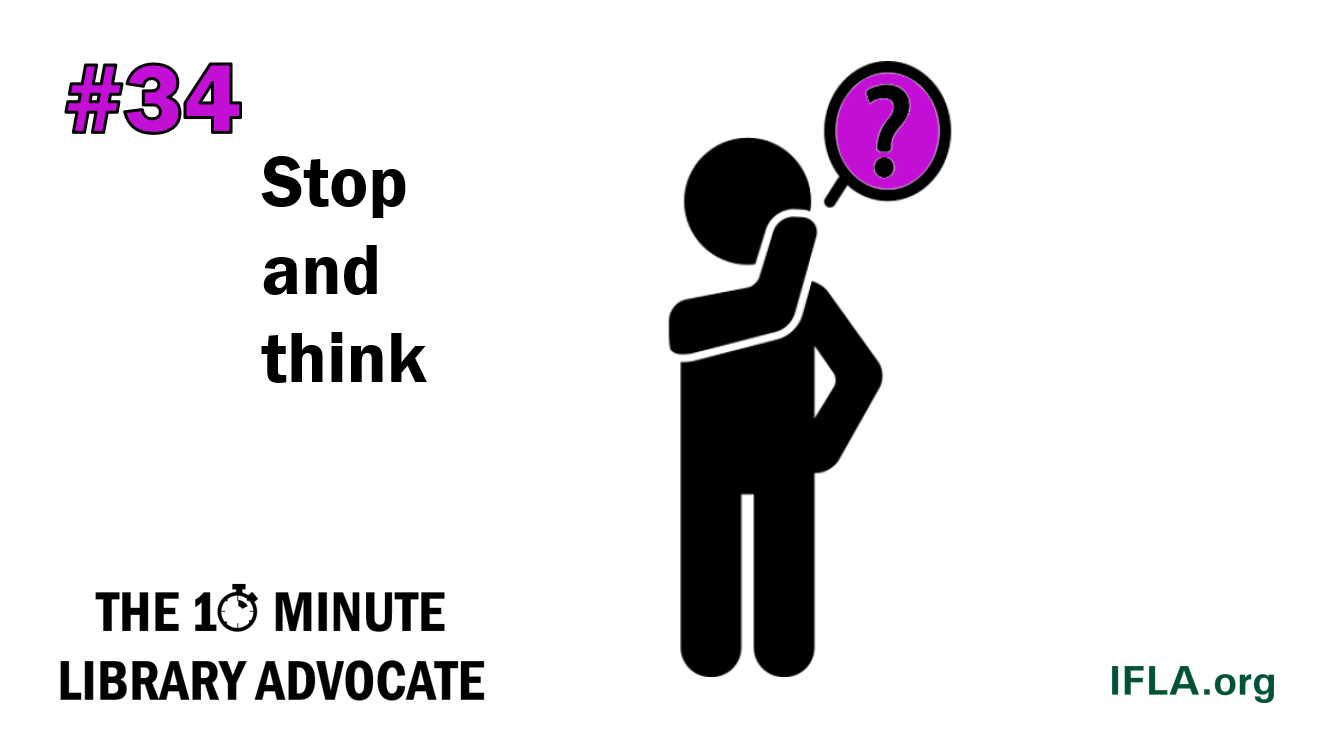A recognition of the importance of access to information is at the heart of the work of libraries, and the first of IFLA’s core values.
This access refers to all types of information, from all sources. Given their focus on the wellbeing of users, what matters in the end is how the information provided can improve lives, regardless of its form or source.
However, the first thing that comes to mind for many, when talking about access to information, is legal information – knowledge about the law, and laws, that govern our lives. The role of libraries in guaranteeing the possibility for all to find, read and make use of this sort of information is as great as for any other.
To mark the International Day for the Universal Access to Information, which this year focuses on the importance of leaving no-one behind – this blog summarises how libraries make the difference.
Empowering and Emancipating
The replacement of the rule of the strongest by the rule of law is certainly a positive thing. It has – at least in principle – meant that everyone is equal before the law, and that the simple fact that someone is more powerful or richer than someone else does not mean that they have better treatment.
Of course in reality, this is not always the case. A key challenge is access to the law itself. If only those with money can afford a lawyer who knows their way around the legal system, there is a clear imbalance.
But even more fundamentally than this, people need to know their rights in order to be able to enforce them. Without access to legal information – for example for housing tenants facing the threat of eviction, for migrants unsure of what support they can claim, or for employees facing reorganisation of the workplace – there is no chance of access to justice.
Similarly, while democracy creates the possibility for everyone to take part in decision-making, this will not be a reality if only the better off can take the time or have the tools to follow and influence discussions. Once again, easy and effective means of accessing information are vital.
These are both areas where the core strength of libraries – providing access to information in a way that best suits the needs of the user – come into their own.
The Importance of Partnerships
Fulfilling this potential does of course require skill and capacity on the part of librarians. There are some libraries focused purely on providing legal help to the public, but this is not the case everywhere.
Elsewhere, different types of library – dedicated law libraries, university libraries, parliamentary libraries, public libraries – each have their own strengths, but on their own are not always well placed to respond to a public need for legal information.
Combining these strengths offers exciting possibilities however. For example, the State Library of New South Wales in Australia helped set up the Legal Information Access Centre over 25 years ago. This turns the information they hold centrally into tools and services for people often in the most vulnerable situations.
In India, law libraries are engaged in outreach programmes via public libraries in order to help many more people find out about their rights as a first step to accessing the legal system. In Croatia, not only does cooperation allow ordinary citizens to get hold of the latest legal information, but it also makes it easier to access legal professionals.
Similarly, as highlighted in an IFLA article last year for Democracy Day, libraries are creating new partnerships to help people track the work of governments and legislators, and so ensure that democracy really works.
The subject of access to legal information is a great example of how foundational information is to any effort to ensure that people can enjoy their rights and improve their lives. Libraries – in particular when they join forces – can play a central role in helping give everyone this possibility.
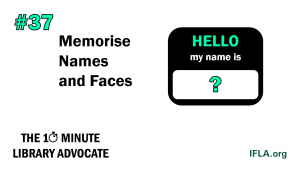 One way of advocating successfully is to become familiar with key decision-makers or influencers.
One way of advocating successfully is to become familiar with key decision-makers or influencers.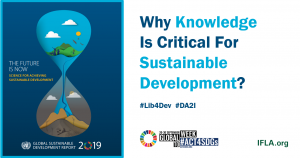 The
The 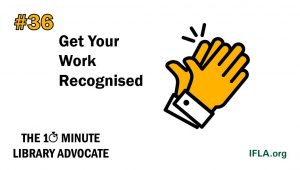 Your advocacy is stronger when you can show the support of others.
Your advocacy is stronger when you can show the support of others.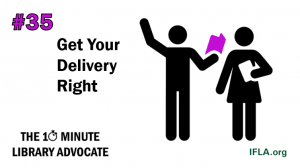 Sometimes in advocacy, it’s not what you say, but how you say it.
Sometimes in advocacy, it’s not what you say, but how you say it.